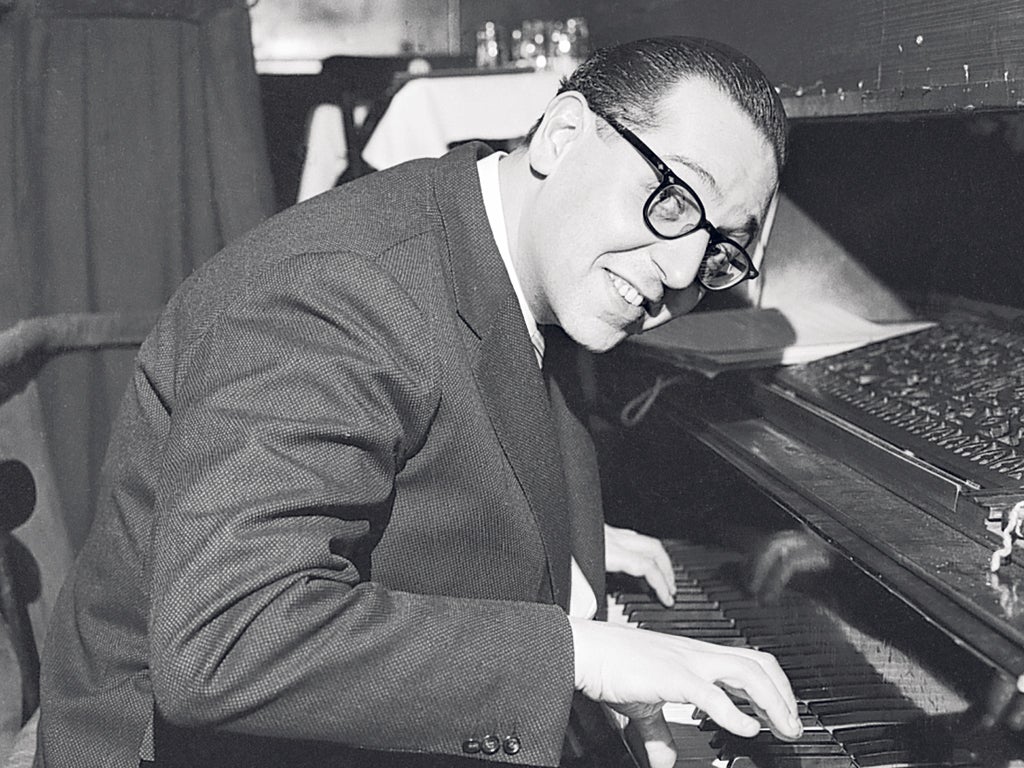
Your support helps us to tell the story
From reproductive rights to climate change to Big Tech, The Independent is on the ground when the story is developing. Whether it's investigating the financials of Elon Musk's pro-Trump PAC or producing our latest documentary, 'The A Word', which shines a light on the American women fighting for reproductive rights, we know how important it is to parse out the facts from the messaging.
At such a critical moment in US history, we need reporters on the ground. Your donation allows us to keep sending journalists to speak to both sides of the story.
The Independent is trusted by Americans across the entire political spectrum. And unlike many other quality news outlets, we choose not to lock Americans out of our reporting and analysis with paywalls. We believe quality journalism should be available to everyone, paid for by those who can afford it.
Your support makes all the difference.Georg Kreisler was widely acknowledged in Germany and Austria as a master of the satirical songs for which Viennese cabaret is held in such esteem. Celebrated above all for his dazzling and provocative texts, his skill in setting them to music and his virtuoso stage performances at the piano, Kreisler was also a novelist, poet, dramatist, theatre director and composer. Almost as striking as his landmark creative career were his remarkable experiences during the Second World War.
Born in Vienna in 1922 as the only child of a middle-class Jewish family, Kreisler was able to escape with his parents in 1938 thanks to family connections in Hollywood. Through his cousin Walter Reisch he met Billy Wilder, Marlene Dietrich and Friedrich Hollaender, whose daughter Philene became Kreisler's first wife, though the marriage was short-lived. The letter he received from Arnold Schoenberg accepting him as a pupil at UCLA failed to secure him a place to study, but he was able to work as musical go-between on the film Monsieur Verdoux, relaying ideas for the score from Charlie Chaplin to Hanns Eisler.
Drafted into the US army in 1942, Kreisler was trained in intelligence work and helped as an interpreter in the interrogation of Nazi prisoners, among them Hermann Goering. While stationed in England he toured American military bases with a troop entertainment that gave him a taste for performance. When back in the US after the war, however, he struggled to establish himself as an entertainer; he and his second wife, a Canadian model named Mary Greenwood, were eventually rescued from destitution by a regular job playing in a New York hotel bar.
A sense of artistic stagnation finally prompted the decision to return to Vienna in 1955; having taken American citizenship, which he never relinquished, he was once more set to become a foreigner on the other side of the Atlantic. He soon rose to prominence as a member of the cabaret ensemble that featured Gerhard Bronner and Helmut Qualtinger, though their collaboration quickly ended in acrimony. Further disputes arose with his third wife, the actress Topsy Küppers, over Kreisler's one-woman show "Tonight Lola Blau", a work still widely performed across Germany today.
From Vienna Kreisler moved to Salzburg, and thence to Berlin, where, in the 1970s, he met his fourth wife, the actress Barbara Peters; they became devoted companions, married in 1985 and performed together on stage until Kreisler was approaching 80.
Kreisler's refusal to compromise or moderate his radical left-wing leanings and mockery of capitalist power élites guaranteed him permanent controversy. So while German-speaking audiences found his work hilarious, moving, and breathtaking in its intellectual scope and technical accomplishment, his songs were often banned on radio and censored on television. Frequently cold-shouldered within the theatre, Kreisler saw this as anti-Semitic.
His most popular song, "Taubernvergiften im Park", a mock-schmaltzy waltz that exhorts the Viennese to poison their local pigeons, remains especially controversial: Kreisler is widely alleged to have plagiarised it from Tom Lehrer, a claim he vigorously denied.
Among the several hundred songs he produced, the irreverent lollipops, macabre classics and Jewish parodies of the 1950s and '60s retain theirpopularity, but much remains to berediscovered in the intensely mordant and melancholy songs that make his output from the 1970s so striking. Their range includes satirical and literalsavagery as well as agonised contemplation, the social diatribes as memorable as the more intimate, personal narratives expressing deep emotion and pathos.
The verbal and musical pyrotechnics that adorn the withering satire have generated enduring interest in Kreisler's songs; the skill with which he dissects institutionalised villainy and expresses human fragility make them true classics to set against Eisler's Tucholsky settings or the Brecht-Weill canon. Songs that gain in relevance over time despite the propensity of satire to be ephemeral, and that are widely reinterpreted by younger performers, are ample testimony to his artistic credentials.
Yet if anything Kreisler himself tended to deprecate his songs in comparison with his serious music (two operas), his stage work, novels and poetry, and he was proud to receive the Hölderlin Prize in 2010, an award that linked his name with one Germany's greatestclassical poets.
Colin Beaven
Georg Kreisler, entertainer: born Vienna 18 July 1922; married four times (three children); died Salzburg 22 November 2011.
Join our commenting forum
Join thought-provoking conversations, follow other Independent readers and see their replies
Comments